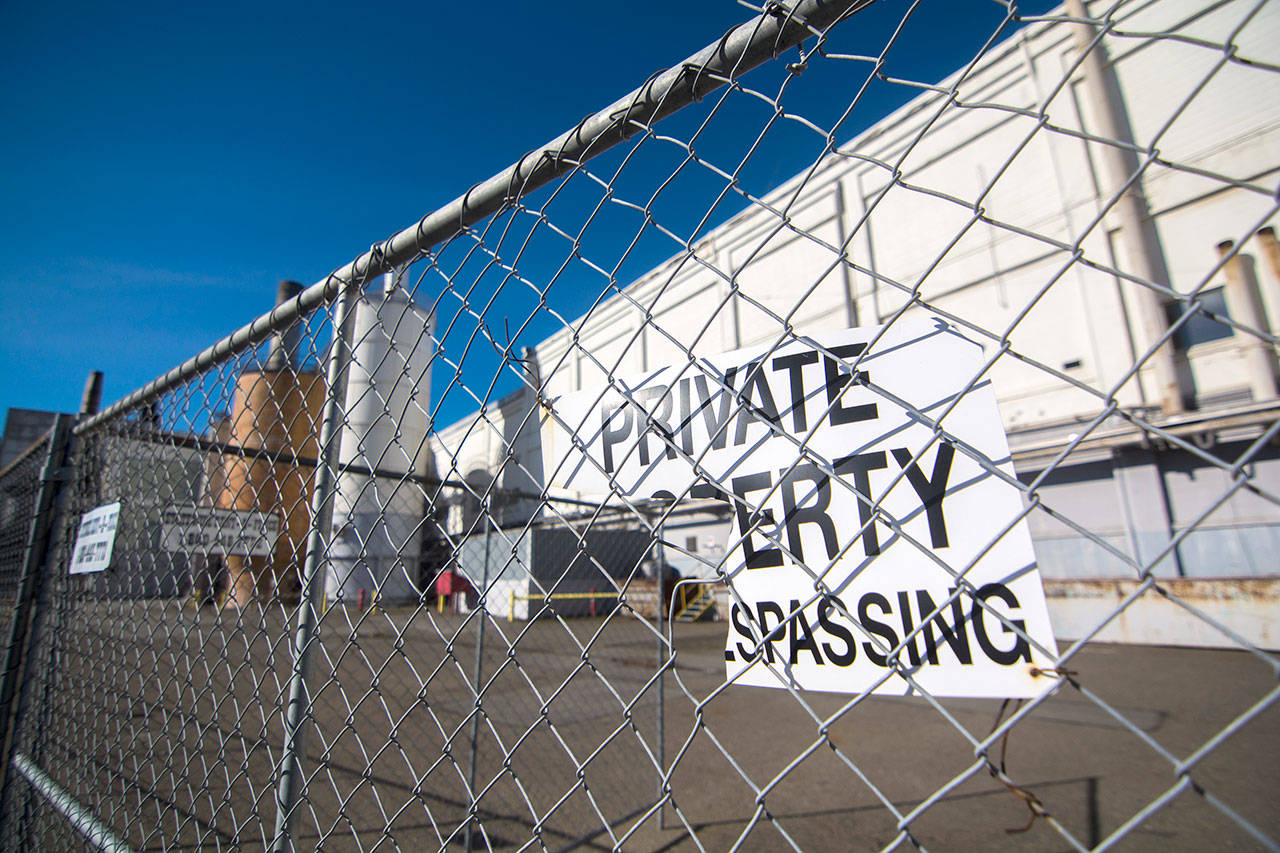PORT ANGELES — McKinley Paper Co. has put on hold plans to retool the Nippon Paper Industries USA paper plant it purchased almost a year ago for manufacturing cardboard linerboard, a company official said Monday.
The planned target of December as a startup date is out of the question, said Herb Baez, vice president of the Mexican-owned company’s U.S. operations.
“That’s not going to happen,” Baez said.
“We are taking it a day at a time.”
Baez said he hopes the plant can begin production in 2019 but could not be more definitive.
“Right now, we don’t have anything specific,” he said.
“I don’t want to raise expectations.
“Things are happening in the market.”
City Manager Dan McKeen said Monday when the plant has operated it pumped about $500,000 a year in electric utility taxes into the city’s general fund, paying for public safety, parks and other city services.
“It could lead to layoffs if they don’t start up early next year,” McKeen said.
“We really need to talk to them as we are putting together our [2019] budget.”
The prospect of the plant’s continued shutoff of manufacturing past December “is very concerning,” Mayor Sissi Bruch said Monday.
“We have to live within our means,” she said.
“We are just going to have to cut services, which will probably entail layoffs, but we are going to keep our fingers crossed that they can start up.”
The shutdown of manufacturing for most of 2017 cost the city $440,000 in utility tax revenues that were covered by $373,500 in budget savings and $66,500 in reserves.
McKinley is owned by Mexican paper maker Bio-Pappel.
With a second paper plant in Pruitt, N.M., McKinley uses recycled cardboard for manufacturing cardboard-box liners.
McKinley purchased Japanese-owned Nippon on March 31, 2017, for $20.6 million, including a $91 million biomass electricity cogeneration plant, after Nippon had ceased production of products including telephone-book paper, citing market conditions.
“You don’t buy something to keep it idle,” Baez said.
The company had an 18-month plan for reopening the mill as of April 1, 2017, and in July 2017, was still sticking to that plan, Baez said in an interview after a meeting of regional community and business leaders in Port Angeles sponsored by the Seattle Metropolitan Chamber of Commerce.
Nippon, which employed 150 workers before beginning to lay them off, had 25 employees as of Dec. 1 to keep the plant maintained and for security and administration.
A vendor had been selected for equipment needed to retool the plant, a company spokeswoman had said, but Baez said Monday one was not hired.
Workers were seen walking into the plant mid-day Monday.
Human Resources Manager Cathy Price said she could not comment on the plant’s status.
Factory workers remaining at the plant are members of the Association of Western Pulp and Paper Workers Local 155.
Union President Greg Pallesen said Monday in a telephone interview from his Portland, Ore., headquarters that the industry is hurting everywhere.
“It doesn’t matter if you are them or a huge multinational corporation,” Pallesen said.
“Everyone is facing challenges in the pulp and paper industry, mainly because of unfair trade acts.”
Pallesen also cited the “foolishness” of giving hundreds of millions of dollars in tax breaks to corporations without any requirements that they reinvest in the economy.
“We are working with them,” he said of McKinley.
“They are not getting the money to reinvest like these corporations.”
Former Nippon employee Andy Grossell said Monday that he’s doing “tree work” for a living.
Grossell, the former Local 155 union representative, said he lost touch with other mill employees after the mill shut down production.
“You kind of lose touch with everybody when something like that happens,” he said.
Grossell said he won’t be working for McKinley at the old Nippon plant when production starts up again.
“No way,” he said, citing “personal reasons.”
________
Senior Staff Writer Paul Gottlieb can be reached at 360-452-2345, ext. 55650, or at pgottlieb@peninsuladailynews.com.

